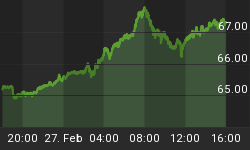A reader reminded me of this 2011 Vanity Fair article, where Joseph Stiglitz argues that growing income inequality will harm future US economic growth.
"What matters, [some people] argue, is not how the pie is divided but the size of the pie. That argument is fundamentally wrong........
First, growing inequality is the flip side of something else: shrinking opportunity. Whenever we diminish equality of opportunity, it means that we are not using some of our most valuable assets -- our people -- in the most productive way possible.
Second, many of the distortions that lead to inequality -- such as those associated with monopoly power and preferential tax treatment for special interests -- undermine the efficiency of the economy. This new inequality goes on to create new distortions, undermining efficiency even further. To give just one example, far too many of our most talented young people, seeing the astronomical rewards, have gone into finance rather than into fields that would lead to a more productive and healthy economy.
Third, and perhaps most important, a modern economy requires 'collective action' -- it needs government to invest in infrastructure, education, and technology....... America has long suffered from an under-investment in infrastructure (look at the condition of our highways and bridges, our railroads and airports), in basic research, and in education at all levels. Further cutbacks in these areas lie ahead."
There are obvious flaws in Stiglitz' argument. First, he equates income inequality with unequal opportunity. These are two different concepts. Michael Jordan might earn more income than me, but this does not necessarily indicate unequal opportunity. Even with the same opportunity I am unlikely to ever succeed as a basketball player. Equal opportunity is important in maximizing economic growth but will not achieve equal outcomes.
Distortions associated with monopoly power and unequal treatment of taxpayers both promote inefficiency. But we must be careful not to "put the cart before the horse." Increasing taxes on the rich will not eliminate these distortions. We need to eliminate monopoly power and unequal treatment of taxpayers to promote greater economic efficiency -- not greater income equality.
I have no argument against increased investment in infrastructure, education, and technology, but it is a stretch to blame under-investment in this area on the wealthy. There are a multitude of other interests, including defense and welfare, that have diverted funds away from investment in these areas. Economic growth benefits us all -- the interests of the wealthy are generally aligned with those of their fellow citizens. In fact, as a group, top income earners benefit more from economic growth than any other group and are unlikely to act against their own self-interest.
No doubt there are interest groups who argue for lower taxes or favorable treatment of specific industries, just as there are interest groups that argue for increased welfare payments to retirees. What needs to be addressed -- in the interests of greater economic efficiency and equity -- is the amount of influence these interest groups exert over political decisions.
Economists often confuse arguments for greater efficiency with arguments for greater equity. Stiglitz tries to draw a line from greater equity to greater efficiency. Unfortunately most of the evidence points to the opposite. Societies, like the UK in the 1960s and 1970s and Sweden in the 1970s and 1980s, who focused on greater equity, ended up damaging economic efficiency and growth -- harming the very people their policies were intended to help.
As Ross Gittins argues, we need to achieve both efficiency and equity. My suggestion is twofold. Start by designing a tax system based on efficiency, where we maximize economic output while minimizing costs of tax collection. This requires greater simplicity, removal of progressive tax rates, and elimination of favorable treatment for specific industries and/or voting blocs. Complexity increases costs as well as creating opportunities for tax avoidance.
When we have maximized tax revenues through increased output and efficient collection, we can then focus on equity when deciding how tax revenues are spent. Redressing the imbalances of income inequality is unachievable. Instead concentrate on ensuring equal opportunity for all. Long-run investment in education, additional support for disadvantaged students, increased spending on infrastructure, and on research will have payoffs in terms of economic efficiency. And an efficient economy will benefit everyone.
The "size of the pie" really does matter but how it is shared will also make a difference to future growth.















